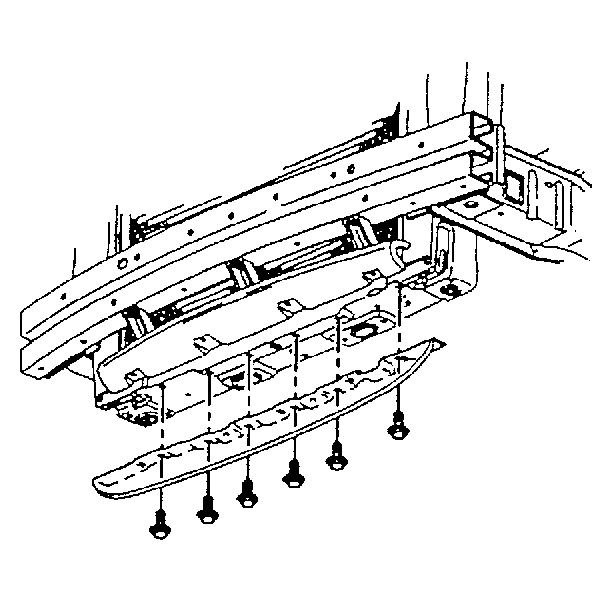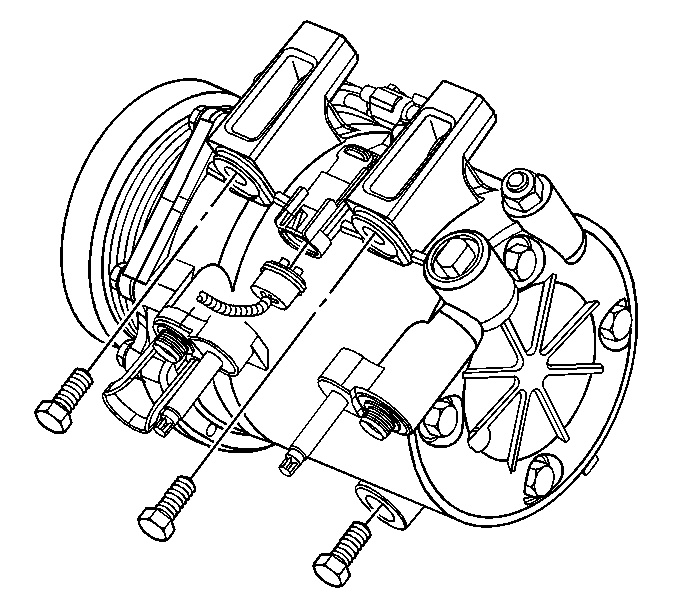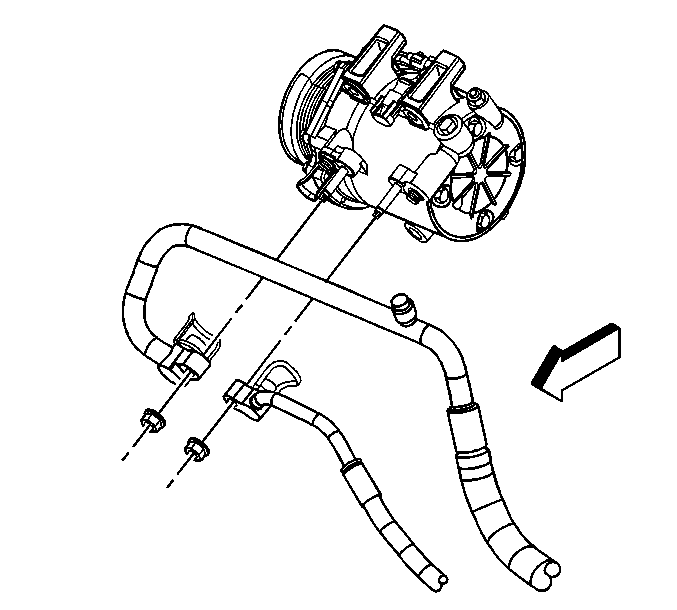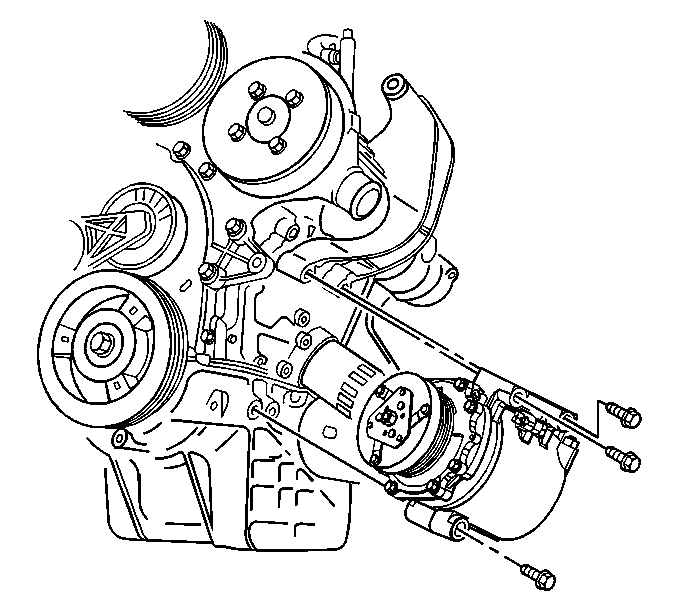Tools Required
J 39400-A Halogen Leak Detector
Removal Procedure
- Recover the refrigerant from the A/C system. Refer to Refrigerant Recovery and Recharging .
- Raise and support the vehicle. Refer to Lifting and Jacking the Vehicle in General Information.
- Remove the RH engine splash shield. Refer to Engine Splash Shield Replacement in Body Front End.
- Release the drive belt tensioner and remove the belt from the compressor pulley.
- Remove the air baffle bolts.
- Remove the air baffle.
- Disconnect the electrical connector from the compressor.
- Disconnect the engine harness electrical connector.
- Remove the suction hose nut.
- Disconnect the suction hose from the compressor.
- Remove the suction hose from the compressor.
- Cap off the suction port of the compressor.
- Remove the discharge hose nut.
- Disconnect the discharge hose from the compressor.
- Cap off the discharge port of the compressor.
- Remove and discard the sealing washers.
- Remove compressor mounting bolts.
- Remove the compressor.
- If replacing the compressor, drain and measure as much of the PAG oil as possible from the removed compressor:
Important: The A/C compressor is accessed through the right wheel opening.
Turn the steering wheel to the right before lifting the vehicle.

Reposition the engine harness away from the compressor.

Important: Cap or tape the open A/C lines immediately, to prevent system contamination.

| 19.1. | Drain the PAG oil from both the suction and discharge ports of the removed compressor into a clean container. |
Rotate the compressor crankshaft to assist draining the crankcase oil.
| 19.2. | Measure and record the amount of PAG oil drained from the removed compressor. |
This measurement will be used during installation of the replacement compressor.
Installation Procedure
- Install the compressor.
- Install the compressor mounting bolts.
- Uncap the discharge port of the compressor.
- Using a lint-free clean, dry cloth, carefully clean the sealing surfaces of the A/C refrigerant lines and the A/C refrigerant component.
- Install the sealing washer to the discharge hose.
- Connect the discharge hose to the compressor.
- Install the discharge hose nut.
- Install the sealing washer to the suction hose.
- Uncap the suction port of the compressor.
- Connect the suction hose to the compressor.
- Install the suction hose nut.
- Connect the electrical connector to the compressor.
- Connect the engine harness electrical connector.
- Install the air baffle.
- Install the air baffle bolts.
- Release the belt tensioner and install the drive belt to the compressor pulley.
- Install the RH engine splash shield. Refer to Engine Splash Shield Replacement in Body Front End.
- Lower the vehicle.
- Evacuate and recharge the A/C system. Refer to Refrigerant Recovery and Recharging .
- Leak test the fittings of the component using J 39400-A .
Important: The replacement compressors are pre-charged with PAG oil.
Refer to Refrigerant System Capacities .
Notice: Use the correct fastener in the correct location. Replacement fasteners must be the correct part number for that application. Fasteners requiring replacement or fasteners requiring the use of thread locking compound or sealant are identified in the service procedure. Do not use paints, lubricants, or corrosion inhibitors on fasteners or fastener joint surfaces unless specified. These coatings affect fastener torque and joint clamping force and may damage the fastener. Use the correct tightening sequence and specifications when installing fasteners in order to avoid damage to parts and systems.
Tighten
Tighten the bolts to 50 N·m (37 lb ft).

Important: Flat washer type seals do not require lubrication.
Tighten
Tighten the nut to 16 N·m (12 lb ft).
Tighten
Tighten the nut to 16 N·m (12 lb ft).

Tighten
Tighten the bolts to 20 N·m (15 lb ft).
